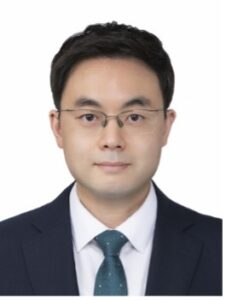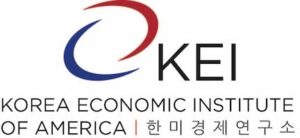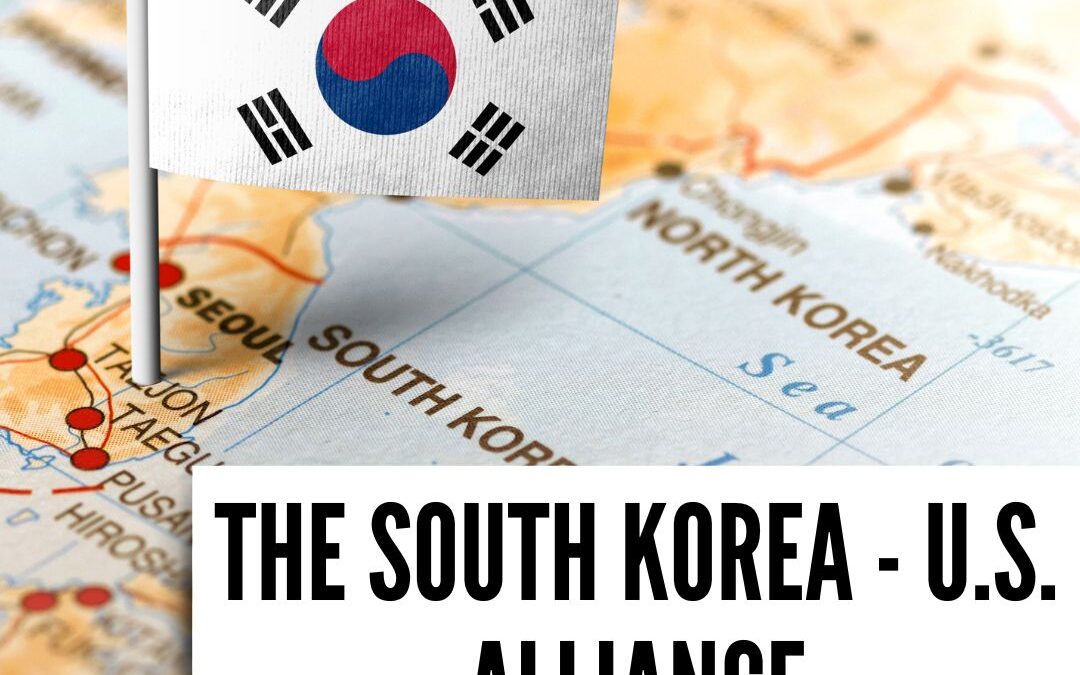
The South Korea – U.S. Alliance & the Challenges of North Korea & China
6:00 PM – Drinks Reception & Networking
7:00 PM – Program
The South Korea-U.S. Alliance: Democracy, Economics and the Challenges of China & North Korea
Since the aftermath of WWII, through the Korean War, the Cold War and the major challenges of recent decades, the Republic of Korea (South Korea) and the United States have developed and strengthened one of the most important military, political and economic alliances in modern history. The Republic of Korea has become a beacon and forerunner of economic development, cultural influence and democracy for Asia and beyond.
For 40 years, the Republic of Korea has served as a model for democratic development, dynamic economic growth and political stability for the region and the world. Despite the threat and proximity of authoritarian or communist regimes such as China, Russia and North Korea, the Republic of Korea has remained a touchstone for civil rights, fair elections and the rule of law.
Economic bonds between the two nations continue to strengthen. The U.S. is the 2nd largest trading partner of the Republic of Korea. The Republic of Korea is the 6th largest trading partner for the U.S., the 4th largest trading partner for the State of Texas, and a top 5 destination for U.S. LNG – liquified natural gas.
The Republic of Korea has also become a global cultural force in the world through music, television, movies and other avenues. Additionally, it is increasingly socially connected with U.S., with over 40,000 students studying in the U.S. and thousands of Americans studying in the Republic of Korea each year.
Along with these promising attributes, long standing concerns continue for the alliance. In addition to its massive economic growth and global influence in recent years, China has taken an increasingly active and sometimes contentious role in East Asia. While the ever-present dangers and unpredictability of the nuclear armed regime of North Korea threaten not just East Asia, but the world.
Representatives from the Embassy of the Republic of Korea, the U.S. Department of State and the Korean Economic Institute of America KEI will discuss the current state of the alliance, what the future may hold for this vital partnership, and the role of China and North Korea in the years to come.
About the Speakers
 Noah Shaw – DPRK Political-Military Officer Office of Korean and Mongolian Affairs Bureau of East Asian and Pacific Affairs Department of State
Noah Shaw – DPRK Political-Military Officer Office of Korean and Mongolian Affairs Bureau of East Asian and Pacific Affairs Department of State
Noah Shaw is a desk officer in the State Department’s DPRK Unit of the office of Korean and Mongolian Affairs (EAP/KM-DPRK). His portfolio covers political-military issues related to the DPRK. Prior to his work on DPRK affairs, Noah served from 2019 through 2023 in the State Department’s Office of Taiwan Coordination (EAP/TC), covering policy issues related to cross-Strait relations and Taiwan’s external relations. Prior to joining the State Department, Noah worked in Beijing, China at the Confederation of British Industry and APCO Worldwide. He is a graduate of the University of Chicago and received his master’s degree in Asian Studies from Georgetown University’s School of Foreign Service of International Studies. He speaks Chinese.
 Troy Stangarone – Senior Director, Korea Economic Institute (KEI)
Troy Stangarone – Senior Director, Korea Economic Institute (KEI)
Troy Stangarone is Senior Director and Fellow at the Korea Economic Institute (KEI). He oversees KEI’s trade and economic related initiatives, as well as the Institute’s relations with Capitol Hill and the Washington, DC trade community. As part of his broader portfolio he serves as the editor for KEI’s flagship publication, Korea’s Economy, and oversees KEI’s blog, The Peninsula.
Mr. Stangarone has written extensively and has been widely quoted on U.S.-Korea relations, South Korean trade and foreign policy, and North Korea. His work has appeared in publications such as Foreign Policy, CNBC, CNN, the South China Morning Post, East Asia Forum, China-US Focus, the JoongAng Ilbo, and the Korea Herald.
In addition to his work at KEI, Mr. Stangarone is a member of the International Council of Korean Studies Board and the Korea-America Student Conference’s National Advisory Committee. He is a columnist for the Korea Times and a regular contributor to The Diplomat. He was also a 2012-2013 Council on Foreign Relations International Affairs Fellow in South Korea, sponsored by the Asan Institute for Policy Studies. He holds a MSc. in International Relations from the London School of Economics and Political Science and a B.A. in Political Science and Economics from the University of Memphis.
 Sung Hyun Nam – First Secretary Embassy of the Republic of Korea in the United States
Sung Hyun Nam – First Secretary Embassy of the Republic of Korea in the United States
Sung Hyun Nam began his assignment as First Secretary of the Embassy of the Republic of Korea (ROK) in Washington, D.C. in August, 2023. His portfolio within the Embassy covers ROK-U.S economic issues. Prior to his assignment in Washington, D.C., Sung Hyun served as Deputy Chief of Mission at the ROK Embassy in Accra, Republic of Ghana, and Deputy Director for Disarmament and Nonproliferation at the Ministry of Foreign Affairs (MOFA) in Seoul. Sung Hyun received his bachelor’s degree in business administration from the Seoul National University and his executive master’s degree in public administration from the Hertie School.
This event is held in partnership with:




